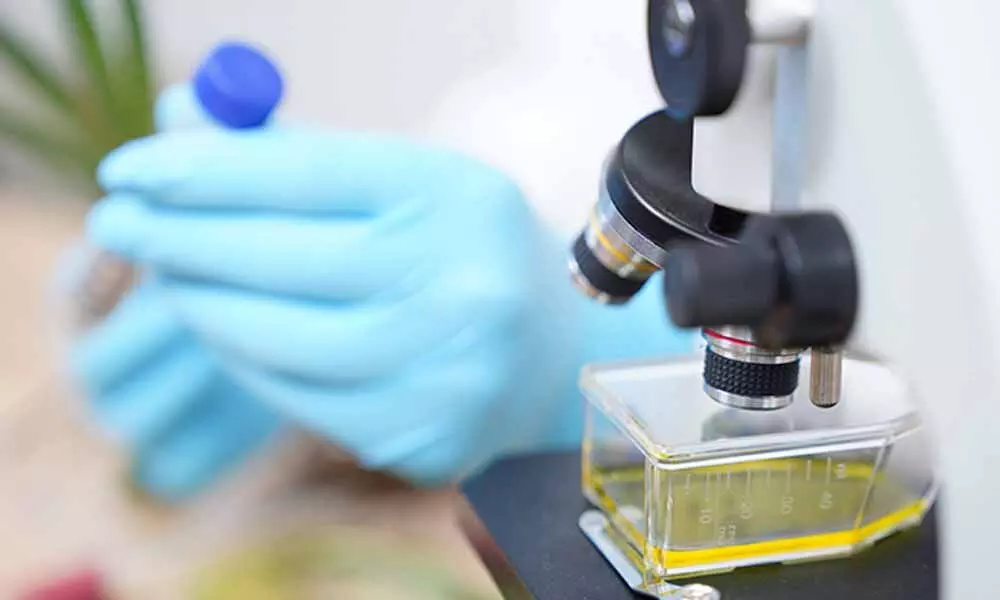Live
- 13 killed, 18 injured as landslides, flash floods hit Indonesia's North Sumatra province
- Israeli PM seeks additional delay of testimony in court for criminal trial
- JAIN International Residential School, Bengaluru jointly with The Sports School to announce India’s First Integrated Scholarship Future25
- Sale certificate issued in pursuance to a court's auction not required to be stamped: Supreme Court
- Andhra Pradesh: Jagan flays Chandrababu-led govt for neglect of education
- Sri Lanka issues flood warnings for 12 flood-prone river basin areas
- IPL 2025 Auction: Venkatesh Iyer sold to KKR for Rs 23.75 cr, Stoinis joins PBKS for Rs 11 crore
- Kharge to lead Opposition strategy meeting as Parliament session kicks off on Monday
- Three killed in firing as violence breaks out amid Sambhal mosque survey in UP
- IPL 2025 Auction: Ravichandran Ashwin, Rachin Ravindra return to Chennai Super Kings
Just In
COVID 19: Reinstating public health values


While we are all determined to fight Covid 19, it is also time to reflect on what lessons does this pandemic offer.
While we are all determined to fight COVID 19, it is also time to reflect on what lessons does this pandemic offer. There would, of course, be many lessons as we navigate through this difficult time but to begin with, it comes as a strong reminder of some of the basic values and principles of public health, namely solidarity, collective actions, community orientation and of course the focus on prevention. This reminder is important because public health most often runs the danger of being reduced to individual curative [medical] care alone as evidenced in an over-medicalized approach to health in India.
'Stay home, stay safe': The individual and the collective
A publication asks its viewers to tweet who are they staying home for; the Prime Minister appeals to all Indians not to step out of the home; the medical fraternity joins the plea to practice physical distancing to break the chain of transmission; spiritual leaders remind people the virtues of a good human being to display responsibility towards oneself and others by staying at home. What do these appeals for 'stay home, stay safe' as a public health measure signify? These indeed emphasize the community orientation of public health and how individuals are necessarily in and of the collective. COVID-19 [for that matter other diseases and deaths] is a collective problem and we, as a society, have an obligation to protect each other. Such an obligation implies the individual as part of collective responsibility. This is perhaps one of the critical moments for us to realize how our lives and actions are deeply interconnected – what I do [sharing symptoms, getting tested, practising self-isolation and others] has a bearing on others and vice versa.
However, these actions are on their own important but certainly not enough. Our obligations and actions extend to all those for whom staying at home is a huge price to pay both because of the long journey to the 'home' itself [migrants], do not even have a home [pavement dwellers], practising physical distancing is unfeasible due to space as well as loss of wage [for many who are on daily-wage/contractual work] thus risking life itself for whom COVID-19 poses multiple burdens. The sense of the 'collective'in public health necessarily evokes the connotation of equity. This lockdown is a time leeway not only to arrest infection but think through responses to life post the pandemic for different vulnerable groups.
'We are in it together'
COVID-19 more than ever has reinstated the principle of solidarity for different reasons not least because of the fear of the unknown. It is one of those rare occasions that the medical fraternity is confronted with uncertainty answering questions in terms of 'maybe', nobody knows', 'no solid evidence' etc. The fact that this global pandemic needs to be fought together is reiterated across different forums though the responses have not been uniform. Public health, by its definition, is about collective actions, mutual obligations and shared benefits and burden of health and illness. Unfortunately, in normal times, solidarity is far from our thinking and practice in public health as evidenced in our fragmented health care system and/or responses to health challenges including universal health coverage.
'Back to basics'
It is common sense knowledge that prevention is better than cure but perhaps so commonsense that it is assumed than practised. The core functions of public health are to prevent disease, promote health, prolong life through organized collective actions in a society. Yet prevention and promotion always take a backseat while hospital-based curative care predominates. It is interesting to see how doctors across specialities and setups now emphasize the basics to prevent exposure to COVID-19 and minimize visits to the hospitals– as basic as washing hands in soap and water. Hand washing is important not only to prevent exposure to COVID-19 but many other ailments too but is rarely emphasized at the individual and population level, along with other basic preventive measures.
While a 'war' like the situation of COVID-19 has importantly reinstated some of the basic values of public health, one sincerely hopes that these lessons do not become an aberration [true of war times alone] but are an integral part of the 'normal' as we all know, India has many long-standing public health issues to address. Fear is powerful but does not last as a public health measure while our shared responsibility does.
Arima Mishra, Faculty, Azim Premji University

© 2024 Hyderabad Media House Limited/The Hans India. All rights reserved. Powered by hocalwire.com






